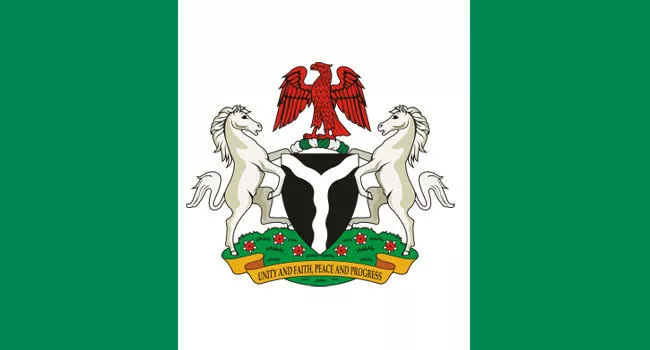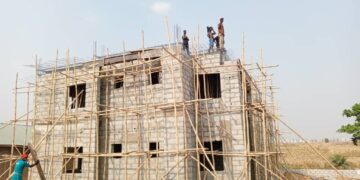The cost of doing business has gone through the roof in Nigeria, causing unprecedented harm to businesses, government and consumers. Companies are finding the business environment unconducive and their products uncompetitive.
Recall the headline Consumer Price Index (CPI) for March stood at 33.2 per cent, driven by persistent factors such as insecurity, foreign exchange depreciation, and the impact of the removal of PMS subsidy, among others.
Speaking, the director-general of Manufacturers Association of Nigeria (MAN), Segun Ajayi-Kadir said, “the Nigerian economy has encountered a range of challenges in recent years, such as foreign exchange instability, escalated energy prices and food insecurity that have heightened the inflationary pressures and grossly eroded the consumers’ purchasing power. These issues have had a negative impact on the manufacturing sector, leading to decreased production and reduced competitiveness.”
He stated that it is crucial to strike a balance between addressing macroeconomic challenges and supporting the growth and sustainability of the manufacturing industry, recommending a robust synergy between the monetary and fiscal authorities.
According to Ajayi-Kadir, the government must ensure adequate security in farming areas and business environments by fast-tracking the passage of the Police Reform Bill and investing significantly in data platforms, surveillance systems and community policing.
“Stabilise the value of the naira by managing the floating exchange rate within a business-friendly threshold and intensify ongoing reforms to boost the level of liquidity and degree of transparency in the official forex window; prioritise forex and credit allocation to the manufacturers and fast track the proposed recapitalisation of the banking sector; further reduce the reliance of the country on imported products and raw materials by providing incentives for investment in backward integration and local sourcing to reduce the pressure on the dollar to the barest minimum; and prioritise the provision of infrastructure in industrial hubs and boost nationwide investment in renewables to reduce logistics cost and promote competitiveness,” he added.
The director-general of Lagos Chamber of Commerce & Industry (LCCI), Dr. Chinyere Almona said, the private sector, which is the primary driver of growth and employment generation in Nigeria, is currently plagued with increased borrowing costs, reduced investment incentives, heightened uncertainties in our policy environment, and a pressured foreign exchange market.
She noted that, “the recent hikes in the MPR have directly translated into higher interest rates, making it more expensive for businesses to access credit for working capital, expansion, and sustainability.
“We have consistently advised that rate hikes alone will not curb inflation without resolving the challenges of the real sector of the economy. The real sector has demonstrated the capacity to create more jobs, manufacture products for consumption and export, and sustain the industrial base of the economy.
“While we understand that high-interest rates attract Foreign Portfolio Investments (FPIs) and local investors to treasury bills and bonds, we lament the drying up of funds away from the private sector to government treasuries.”
She acknowledged that the removal of the subsidy on electricity supply may have been in line with attracting foreign investors into the sector with a cost-reflective tariff, saying, “we have also advocated that we subsidise production instead of consumption. However, our major concern is seeing businesses pay heavily for the services that they do not enjoy optimally. It is a grave concern that with a higher cost of power, companies are still not having access to the service.”
She called for an aggressive metering programme that leads to a 100 percent coverage of electricity consumers, explaining “this guarantees liquidity for the distribution companies and gives more satisfaction to consumers with a feeling of paying for what they consume. Beyond the provision of infrastructure, we need to have a sound regulatory and policy environment to attract more foreign investment into the power sector.”
According to Almona, Small and medium-sized enterprises (SMEs), in particular, are disproportionately affected by the CBN rate hike policy. Many SMEs operate on thin profit margins and rely heavily on affordable credit to sustain their operations and drive growth.
“The surge in borrowing costs stifles their ability to invest in productivity-enhancing measures, hire new employees, and contribute to economic growth. The Chamber strongly urges the Central Bank of Nigeria to reconsider its monetary policy stance and avoid further increases in interest rates. While the CBN’s objective of containing inflation and stabilising the exchange rate is commendable, it must be pursued in a manner that does not unduly hamper private sector activities and economic growth.”
On the burden of importation, she urged the Central Bank of Nigeria and the Nigeria Customs Service to work together towards having a fixed import duty exchange rate that is lower than the official rate for importation of items in critical sectors like agriculture, manufacturing, power, and healthcare.
She also recommended that “the CBN explore alternative policy measures that promote credit access, stimulate investment, and support entrepreneurship. On metering, the government should create the needed environment where local meter manufacturing can thrive to bridge the current gap in meter deployment. This will reduce the pressure on the foreign exchange market, create jobs, generate revenue for the government, and develop local expertise in meter manufacturing.”











